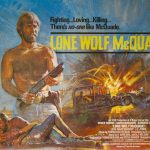The Irishman (2019)
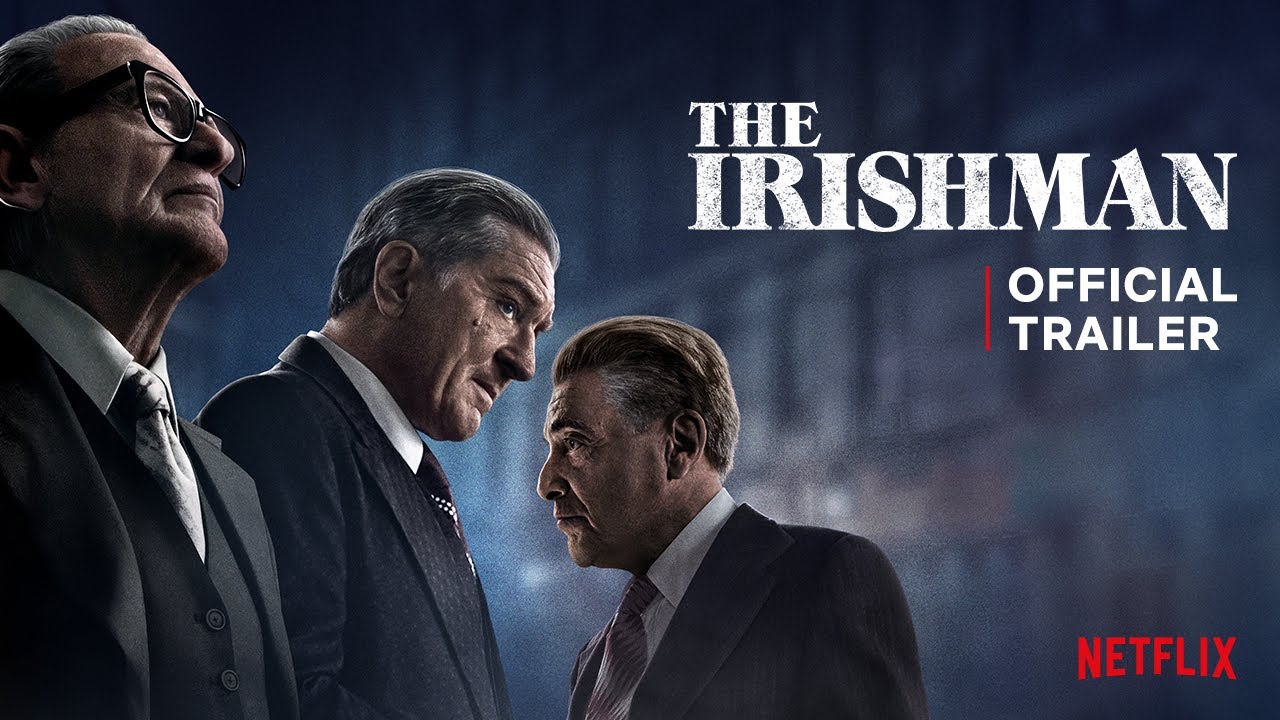
The Irishman is a 2019 epic crime film directed and produced by Martin Scorsese, based on the book I Heard You Paint Houses by Charles Brandt. With a screenplay by Steven Zaillian, the film stars Robert De Niro, Al Pacino, and Joe Pesci, marking a reunion of Scorsese’s longtime collaborators. Spanning several decades, The Irishman tells the story of Frank Sheeran, a truck driver who becomes involved with the mob and reflects on his life of crime, loyalty, and betrayal. The film is a meditation on time, regret, and the personal costs of a life in organized crime.
The Irishman follows Frank Sheeran (Robert De Niro), a World War II veteran turned truck driver, who becomes a hitman for the infamous mobster Russell Bufalino (Joe Pesci). The narrative unfolds through Frank’s perspective as he recounts his involvement in the murder of union leader Jimmy Hoffa (Al Pacino), a significant event that has haunted him for years. As the film moves through different periods of Frank’s life, it explores his deepening ties with the mob, the complexities of loyalty and betrayal, and the personal toll that his violent career takes on him and his loved ones.
The performances in The Irishman are exceptional, with Robert De Niro, Al Pacino, and Joe Pesci delivering some of the most memorable roles of their careers. De Niro’s portrayal of Frank Sheeran is both stoic and vulnerable, capturing the inner conflict of a man who has made morally questionable decisions. Al Pacino’s performance as Jimmy Hoffa is charismatic and explosive, bringing to life the complexities of the real-life union leader. Joe Pesci, often known for playing more volatile characters, delivers a restrained yet powerful performance as Russell Bufalino, adding a quiet menace to the film. The chemistry between these legendary actors elevates the film, making the story’s emotional and moral weight resonate deeply.
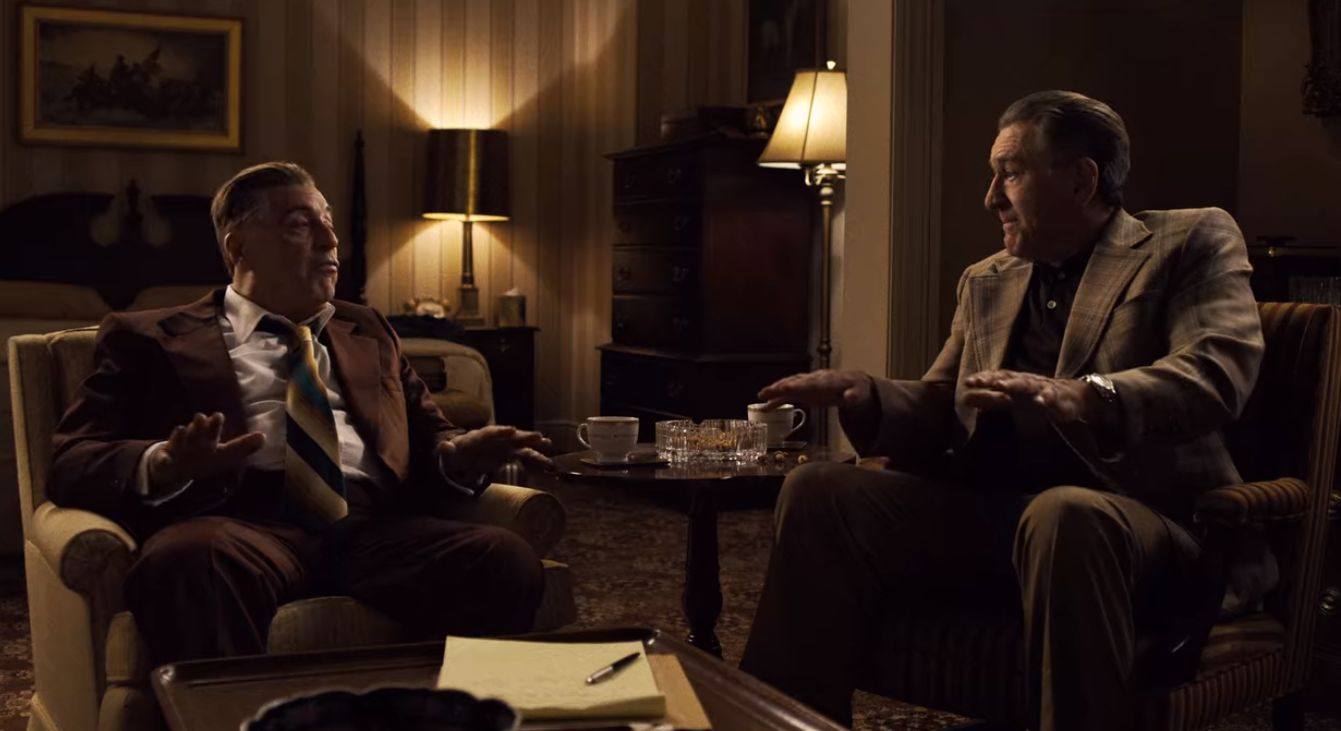
The Irishman explores themes of loyalty, power, and the consequences of a life of crime. The film reflects on the idea of loyalty to both the mob and one’s personal code, and how these loyalties shape Frank’s actions and choices throughout his life. The film also delves into the corrupting influence of power, as the characters constantly grapple with their own motivations and the impact of their decisions on those around them. One of the most prominent themes in the film is the idea of time—how it erodes relationships, shapes memories, and leads to inevitable regret. The film’s somber tone emphasizes the personal toll of a life spent in violence and deceit.
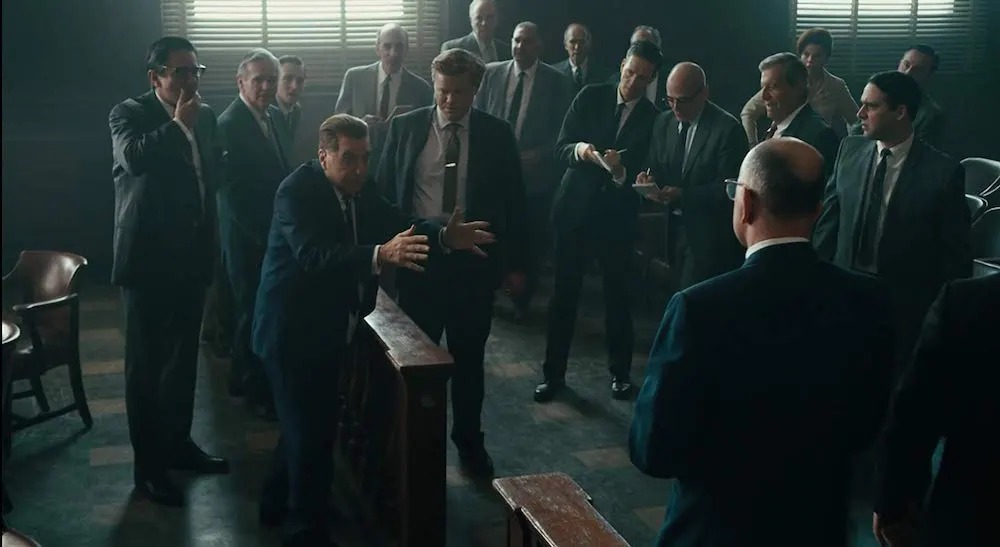
Martin Scorsese’s direction in The Irishman is masterful, showcasing his deep understanding of the gangster genre while also bringing a new level of introspection to it. The pacing is deliberate, allowing the film’s complex narrative to unfold at its own rhythm. Scorsese’s use of flashbacks and long, contemplative shots enhances the film’s meditative tone, creating a sense of reflection as the characters reckon with their past. The cinematography by Rodrigo Prieto beautifully captures the passing of time, with subtle changes in lighting and color that correspond to the film’s emotional shifts. The film’s visual style complements its narrative, reinforcing the themes of memory, loss, and regret.
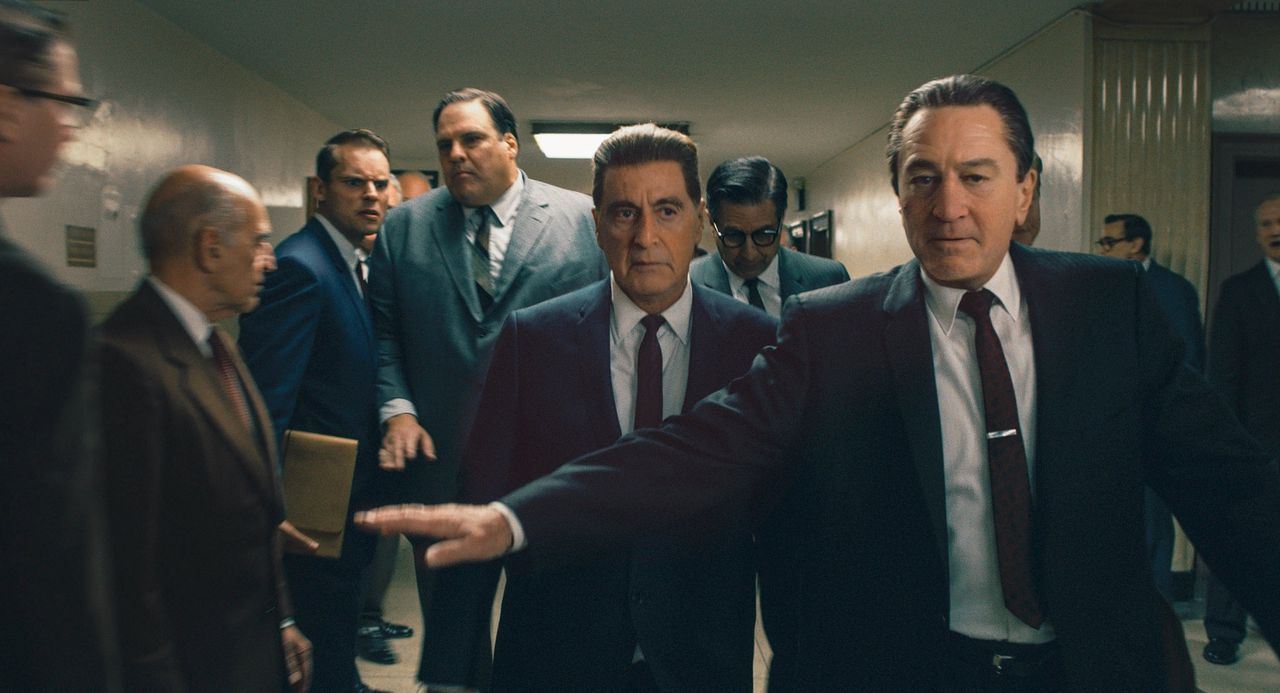
The Irishman is a monumental achievement in filmmaking, offering a deep, nuanced exploration of crime, loyalty, and the passage of time. The film’s exceptional performances, particularly from De Niro, Pacino, and Pesci, bring a level of gravitas to the story that makes it stand out among Scorsese’s illustrious body of work. While its three-and-a-half-hour runtime may seem daunting, the film’s pacing allows it to unfold at a steady pace, giving audiences the opportunity to fully absorb its intricate narrative and emotional weight. The Irishman is a reflective and powerful meditation on the consequences of a life lived in the shadows of organized crime, making it a must-watch for fans of Scorsese’s work and the crime genre in general.








